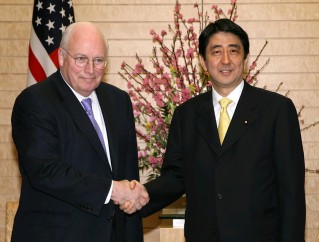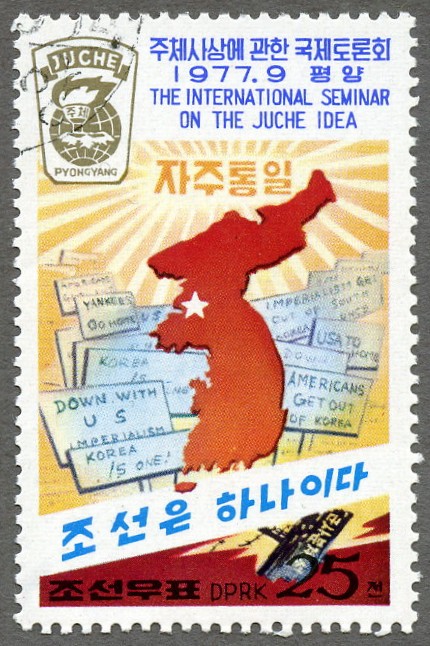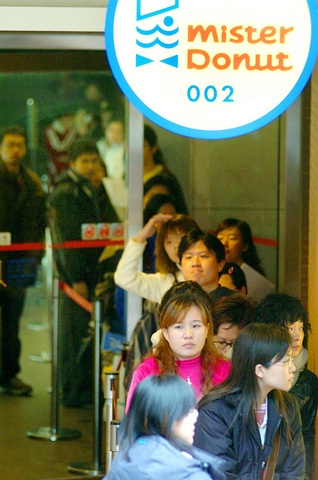The discussion over the proposed presumably well meant but ultimately pointless US congressional resolution condemning Japan’s wartime system of “comfort women” made me wonder, when was this first reported in the US? Since I have easy online access to the New York Times archive I thought I would check there. It seems highly unlikely that the NYT would have passed over mentioning the issue if some other paper had reported it first, so this is most likely as least an approximate date.
***
January 14, 1992
Japan Admits Army Forced Koreans to Work in Brothels
By DAVID E. SANGER,
Three days before Prime Minister Kiichi Miyazawa takes his first official trip to South Korea, the Government admitted today that the Japanese Army forced tens of thousands of Korean women to have sex with Japanese soldiers during World War II, and hinted that women who are still alive might receive some kind of compensation.
Until today, Japan’s official position has long been that the “comfort girls” were recruited by private entrepreneurs, not the military.
But many historians have attacked that position as a convenient rewriting of history, and over the weekend Asahi Shimbun, one of Japan’s largest newspapers, reported that army documents found in the library of Japan’s Self-Defense Agency indicated that the military had played a large role in operating what were euphemistically called “comfort stations.”
Mr. Miyazawa is widely expected to address the issue on his visit to Seoul and to offer a fairly specific apology. The vast majority of the women were forcibly taken to Japanese-occupied China and Southeast Asia from Korea, which was a Japanese colony from 1910 until Japan’s defeat in 1945.. ‘Abominable Episodes’
Over the weekend Japan’s Foreign Minister, Michio Watanabe, said “I cannot help acknowledging” that the Japanese military was involved in forcing the women to have sex with the troops. “I am troubled that the abominable episodes have been unraveled, and they give me heartache,” he said.
Today Japan’s chief Government spokesman, Koichi Kato, offered a more specific apology, saying, “We would like to express our heartfelt apology and soul-searching to those women who had a bitter hardship beyond description.”
But he said that because Japan settled issues of wartime compensation for Korea in 1965, when the countries resumed full diplomatic ties, there would be no official compensation for the victims. For weeks the Government has been talking about finding private sources of money that would settle claims by surviving “comfort women,” without setting the precedent of reopening reparations claims.
In December, around the time of the 50th anniversary of the Pearl Harbor attack, three Korean women filed suit in Tokyo, demanding compensation for forced prostitution in China. Occasional Protests in Seoul
Though the Government said that officially all compensation issues have been settled, officials acknowledged that they could not openly contest the suit without roiling relations with South Korea. Periodically there have been small demonstrations in Seoul denouncing the Japanese for their failure to face the issue.
The question of Japan’s refusal to acknowledge official involvement in the forced prostitution has been a continual irritant in Japanese relations with South Korea and, to a lesser degree, with China. Many of the women were killed or brutally beaten. While historians disagree about how many women were forced to have sex with the troops, estimates run from 60,000 to more than 200,000.
The documents reported in Asahi Shimbun were found by Yoshiaki Yoshida, a history professor, who reviewed them at the Defense Agency. They have been in Japan since 1958, when they were returned by United States troops, and it is not clear why they have stayed out of view for so long.
The “comfort women” debate has been but one of the continuing tensions between Tokyo and Seoul in recent years. South Korean leaders have long complained that they have yet to receive an adequate apology from Japan for wartime atrocities. Last week, at a dinner for President Bush, President Roh Tae Woo of South Korea reportedly expressed concern that Japan has yet to apologize fully for the war.
***
January 18, 1992
JAPAN APOLOGIZES ON KOREA SEX ISSUE
Prime Minister Kiichi Miyazawa of Japan made a formal public apology here today for Japan’s actions in forcing tens of thousands of Korean women to have sex with Japanese soldiers during World War II.
In a speech to South Korea’s National Assembly, Mr. Miyazawa said: “Recently, the issue of ‘comfort women’ in the service of the Imperial Japanese Army has come into light. I cannot help feeling acutely distressed over this, and I express my sincerest apology.”
Mr. Miyazawa’s visit to Seoul has been preceded and accompanied by vociferous campaigning in the South Korean press for an apology from the Prime Minister, and for compensation from Japan for the surviving women.
This call has been echoed by protesters in South Korean cities.. Estimates Up to 200,000
Korean historians estimate that 100,000 to 200,000 Korean women were forced to have sex with Japanese soldiers before 1945, when Japanese colonial rule ended in Korea. It is not known how many survive.
Japanese and South Korean officials said Mr. Miyazawa had also offered an apology in his second round of talks today with President Roh Tae Woo.
Mr. Miyazawa said at a joint news conference afterward that Japan would sincerely investigate the issue.
But there was no mention in their talks of compensation for the surviving women, the officials said.
The question of compensation for 35 years of colonial rule in Korea was settled when the countries established diplomatic relations in 1965. Compensation Suit Filed
But last month three Korean women who say they were forced to have sex with Japanese soldiers filed a compensation suit in a Japanese court, which may set a precedent for other cases.
The issue overshadowed other topics discussed by Mr. Roh and Mr. Miyazawa, particularly South Korea’s growing trade deficit with Japan.
The two leaders agreed to set up a committee to work out by June a plan of action for closing the trade gap and increasing the transfer of Japanese technology to South Korea.
South Korea was $8.8 billion in the red in trade with Japan last year, accounting for nine-tenths of South Korea’s overall trade deficit.
U.S.-NORTH KOREA TALKS SET
WASHINGTON, Jan. 17 (Reuters) — High-ranking United States officials will meet North Korean leaders in New York on Wednesday to discuss the country’s nuclear program and other American concerns, the State Department said today. The United States Undersecretary of State for Political Affairs, Arnold L. Kanter, will meet a delegation headed by the Secretary of the governing Workers Party, Kim Young Sun, a State Department spokesman, Richard A. Boucher, said.
[The North Korea bit was on the same page. Not relevant to comfort women but still amusing to see it was in the news at the time.]






 I arrived in Taipei in May, apparently no more than a couple of months after the introduction of Mr Donut to Taiwan. Unlike in Japan, where it was nothing but a common vendor of sweet and sometimes sticky pastries, Mr Donuts in Taiwan was a phenomenon, with desperate young consumers waiting on lines so snakishly long that they were later to be my frame of reference when my rarely present nominal flatmate Dmitri described to me the experience of waiting in line to get into
I arrived in Taipei in May, apparently no more than a couple of months after the introduction of Mr Donut to Taiwan. Unlike in Japan, where it was nothing but a common vendor of sweet and sometimes sticky pastries, Mr Donuts in Taiwan was a phenomenon, with desperate young consumers waiting on lines so snakishly long that they were later to be my frame of reference when my rarely present nominal flatmate Dmitri described to me the experience of waiting in line to get into